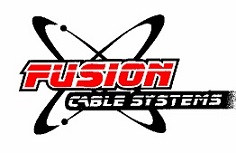Is the cellphone service in your building or parking garage terrible? Is it more than an inconvenience? Does it pose a real danger in the case of emergencies? Then a distributed antenna system (DAS) custom designed and installed by the experts at Fusion Cable Systems may be the solution.
When cellular reception is poor in office buildings, airports and parking garages, it can lead to missed calls, opportunities and lost revenue. The need for seamless and robust wireless coverage is critical for employees to be efficient and effective. Low-quality signals and dropped connections decrease productivity. True work mobility requires a workplace with comprehensive work coverage. When these problems are addressed the results in enhanced efficiency and productivity lead to business gain and revenue growth. Fusion Cable Systems has partnered with Wilson Pro to help to provide the most cost-effective DAS solution for your business.
How does a Distributed Antenna System improve cell service?
The first step Fusion Cable Systems experts take before installing a DAS system is a site survey. We will walk the property and the roof (if possible) to determine cellular signal strength and identify nearby cell towers. We can set up a specialized antenna on the roof pointed directly at the nearest cell tower and complementary cabling and boosters. Every install of a DAS system comes with detailed schematics for facility managers and IT staff members.
When cellular reception is poor in office buildings, airports and parking garages, it can lead to missed calls, opportunities and lost revenue. The need for seamless and robust wireless coverage is critical for employees to be efficient and effective. Low-quality signals and dropped connections decrease productivity. True work mobility requires a workplace with comprehensive work coverage. When these problems are addressed the results in enhanced efficiency and productivity lead to business gain and revenue growth . FCS has partnered with Wilson Pro to help to provide the most cost effective DAS solution for your business.
How is signal strength actually measured?
The signal your phone receives from a cell tower is measured in decibel-milliwatts (dBm), a unit of electrical power in decibels (dB), referenced to 1 milliwatt (mW). There are three things you need to know to understand how decibel-milliwatts work:
One milliwatt of power is equal to 0 dBm. Since cellular signal operates on less power than that (as low as 0.0000000001 mW, sometimes less), dBm signal strength is measured in negative numbers. The closer you get to 0 dBm, the stronger the signal; so, −70 dBm is stronger than −90 dBm.
The milliwatt scale is logarithmic , meaning that a change in dBm yields an exponential change in mW. For example, −70 dBm (0.0000001 mW) is ten times more powerful than −80 dBm (0.00000001 mW), one hundred times more powerful than −90 dBm (0.000000001 mW), and one thousand times more powerful than −100 dBm (0.0000000001 mW).
Any change in dBm (gain or loss ) is noted in ±dB. So if you start with −90 dBm of cellular signal, and you install a cell phone booster system that gives you +30 dB of gain, you’ll end up with −60 dBm of signal.
So, what is considered strong or weak cell signal?
Signal strength
1) Greater than −60 (dBm) Excellent (you’re very close to a cell tower)
2) Range −60 to −75 (dBm) Very good (usually this is the best it gets)
3) Range −76 to −90 (dBm) Good (you’re in an area with decent coverage)
4) Range −91 to −100 (dBm) Fair (coverage is spotty, and may be slow)
5) Range −100 to −110 (dBm) Poor (very weak; you may be having connectivity problems)
6) Less than −110 (dBm) No signal (you’re probably unable to make or complete a call)
Where we install Distribution Antenna Systems:
Fairfield County CT
Litchfield County CT
Hartford County CT
Middlesex County CT
New Haven County CT
New London County CT
Tolland County CT
Windham County CT
Westchester County NY
Rhode Island

